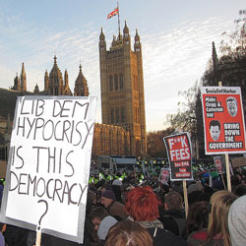The general view that citizens are increasingly apathetic and disengaged from society is misleading, according to new research into levels of participation just published by the NCVO.
Participation: trends, facts and figures is the third in the NCVO’s Almanac series of reports that aim to inform and shape public policy on civil society. The first two covered public services and the sector’s workforce.
The report shows that the habits and characteristics of participation – volunteering, charitable giving, voting, joining membership bodies and so on – are still very much part of the social fabric of the UK. While some habits are stagnant or declining, such as membership of trade unions and political parties, but others, including ethical consumerism, timebanking and membership of environmental groups, are growing.
National Trust membership, for instance, has grown from 278,000 in 1971 to 3.6 million in 2009. RSPB and Friends of the Earth have experienced similar growth. But other charities such as St John Ambulance and the Royal British Legion have seem member numbers dwindle.
Other forms of engagement have remained largely stable, namely volunteering and charitable giving, and some types of engagement are evolving thanks to technology or changing lifestyles.
The report also highlights the recent rise in direct action, citing the protests againt the war in Iraq in 2003, the Drax climate camp in 2006, and more recently the tuition fees marches and sit-ins at corporate premises by UKUncut demonstrators. Southampton University lecturer Dr Clare Saunders states that a "rising trend towards use of direct action looks set to continue".
The report concludes: "Ultimately, the activities and patterns of engagement reflect wider societal trends such as indiviudalism and consumerism: and these trends have shaped, not ended, participation and engagement."









